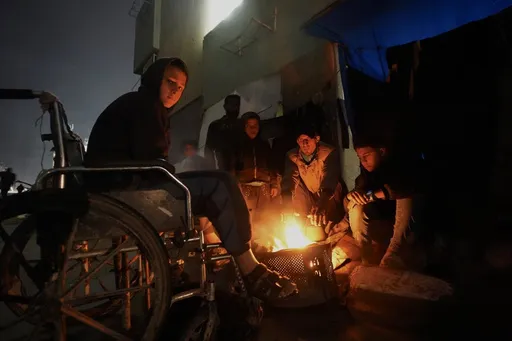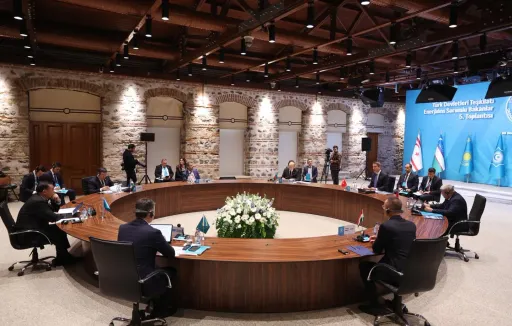By Mahmuda Khan
In Africa and Asia, countless villages grapple with a dire lack of clean water, which not only deprives their inhabitants of a basic necessity but also leads to compromised hygiene, increased disease risks, and pervasive inequalities in opportunities, education, and livelihood.
According to the World Health Organization, at least two billion people consume faeces-contaminated water around the world.
These marginalised communities are confronted with the daunting reality of sending their children or women – armed with empty containers – on arduous and unpredictable journeys to the nearest water source, often located several miles away.
Tragically, this perilous quest often exposes women to constant threats of abduction for human trafficking, while children face the dual dangers of dehydration and deadly encounters with predators, especially crocodiles.
The pressing issue of clean water access has reached critical proportions, demanding urgent action as a staggering 771 million people still lack this essential resource.
Alarming projections by UNICEF indicate that by 2025, nearly half of the world’s population could find themselves residing in regions grappling with limited water supplies.
Bringing hope
For decades, Canadian relief charity Human Concern International (HCI) and other organisations have tirelessly undertaken the task of constructing and maintaining water wells worldwide, bringing hope and empowerment to communities in need.
The inauguration of a water well in these regions becomes a momentous occasion, marked by joyous celebrations reflecting this life-changing milestone's profound significance.
These wells possess an impressive capacity, capable of meeting the water needs of villages housing up to two thousand residents.
However, the provision of clean water goes beyond the mere act of digging holes and installing water wells. It necessitates a comprehensive evaluation of community size, specific needs, and long-term sustainability.
Projects include training and education programmes for local residents, equipping them with the knowledge and skills to effectively maintain the water access technology.
By empowering the community through training initiatives, they become active participants in the preservation and upkeep of the water infrastructure. Once completed, establishing maintenance contracts with local groups becomes crucial to guarantee uninterrupted access to clean water for villages.
In certain cases, innovative water access technologies such as tube wells or boreholes are required to extract fresh water during periods of water scarcity or droughts.
In other places, the implementation of solar-based desalination units can be a transformative solution in areas facing saline water challenges.
Star power
To address clean water access, HCI has forged a strategic partnership with Engin Altan Düzyatan, the internationally-renowned Turkish actor and fervent environmental activist recognised worldwide for his portrayal of Ertugrul Bey in the immensely popular TRT television series Diriliş: Ertugrul.
Sharing HCI’s mission, Altan has utilised his influential platform to champion social change and raise awareness about crucial global environmental issues.
In 2019, Altan directed and filmed the documentary ‘Be Witness’ to shed light on the pervasive water insecurity experienced by underprivileged communities in Türkiye and Africa.
Together, HCI and Altan – its Social Justice Ambassador – have launched the Water for Life campaign to make a meaningful impact in combating water scarcity and promoting sustainable practices.
HCI and Altan’s inspiring partnership has resonated deeply with audiences across North America, drawing the attendance of thousands at galas held in prominent cities across Canada and the United States.
Through these impactful events, Altan and HCI have fostered a groundswell of support, rallying individuals from diverse backgrounds to unite in the pursuit of water equity and social justice.
Noble act
A remarkable milestone has been achieved with the successful fundraising of over a million dollars dedicated to constructing vital water wells throughout Asia and Africa.
Numerous families have generously contributed to this cause, either as a commemorative gesture for their departed loved ones or as a testament to their family's legacy.
In Islam, the provision of water is recognised as a Sadaqa Jariya—an act of ongoing charity with everlasting rewards.
The impact of these contributions transcends individual lifetimes as thousands of people continue to experience the daily blessings derived from the water sourced from these wells.
By perpetuating this noble act, a donor’s influence remains eternally present, creating lasting change and uplifting the lives of countless individuals for generations to come.
By constructing water wells, implementing innovative technologies, and fostering community engagement, HCI is empowering communities for a sustainable future.
But it is the donors who are catalysts for sustainable development, driving transformative change and improving the lives of countless individuals.
The author, Mahmuda Khan, is the executive director of Human Concern International (HCI), the oldest Muslim international relief charity in Canada. Mahmuda holds a degree in Economics and has worked in the humanitarian sector for over a decade.
Disclaimer: The viewpoints expressed by the author do not necessarily reflect the opinions, viewpoints and editorial policies of TRT Afrika.
























